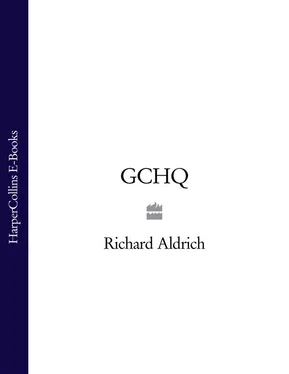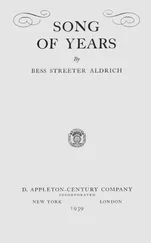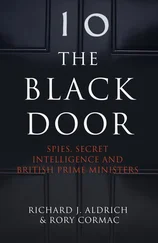Although NSA viewed Hong Kong as Britain’s single most valuable overseas sigint station, GCHQ placed more emphasis on the Middle East. Immediately after the war, Britain had numerous interception stations. The most important was at Heliopolis in Egypt, which boasted many civilian operators and took in much of the region’s diplomatic traffic. The Army ran a large intercept station at Sarafand in Palestine, while the RAF ran a similar installation at RAF Habbaniya in Iraq. There were undercover listening stations buried within embassies and consulates in countries such as Turkey. By the 1950s Britain had also developed covert sites in northern Iran that were focused on Russia. However, the British Empire in the Middle East consisted of very few formal colonies and had long been an agglomeration of mandates, shaky treaty relationships and uncertain base rights granted by royalist regimes. Egypt, which had achieved independence in 1935, was especially anxious to divest itself of the disfiguring presence of British bases. Accordingly, British sigint gradually fell back towards its last proper colonial foothold in the region, the island of Cyprus.
Cyprus was increasingly the home for every kind of secret radio activity in the Middle East. This included not only Britain’s sigint assets but also the monitoring sites of the CIA’s Foreign Broadcast Information Service, which listened in to news broadcasts around the world. In addition, Cyprus offered a safe haven for Britain’s overt and covert propaganda broadcasting in the region. This mushroomed during the premiership of Anthony Eden, who nurtured a special hatred of Egypt’s nationalist leader General Gamal Abdel Nasser, whom he viewed as a dangerous dictator. Eden urged a reduction of British radio propaganda directed at the Soviets in favour of targeting Nasser. 27 As early as 1954 he insisted that a new broadcasting station in Aden covering Iraq and Syria was to receive ‘first priority’, since Nasser’s radio station, The Voice of Egypt, was busily pouring out its own vitriolic message. 28 Britain’s main radio weapon against Nasser was the SIS-owned station in Cyprus, Sharq el-Adna. ‘Sharq’ had originated as a wartime British propaganda radio station that had been taken over by SIS in 1948, and been evacuated from Palestine to the safety of Cyprus. It was soon thought to be the most popular station in the region. 29 SIS was working with John Rennie, the head of Britain’s Information Research Department, to accelerate four other radio projects in the Middle East, including a secretive ‘black station’ that was being developed at two other sites on Cyprus with a transmitter that could reach as far as Aden. 30
On 29 October 1956 Eden launched ‘Operation Musketeer’, a surprise attack to capture the Suez Canal, which Nasser had recently nationalised. Sigint and radio warfare had an important part to play. Arrangements were made for the force commanders to receive a range of key intelligence materials from national sources, including photo-reconnaissance cover and ‘all CX [SIS] reports on Egypt’, as well as material from ‘special sources’, a somewhat coy cover name for sigint. GCHQ attached liaison officers to the main Army, Navy and RAF commanders, and detailed instructions were generated to provide cover for the ‘protection of SIGINT material’. 31 Most of the sigint coverage came from 2 Wireless Regiment at Ayios Nikolaos near Famagusta in eastern Cyprus, with additional help from listeners at Dingli on Malta. While the coverage was good, the radio channels available to push this material forward to field commanders were often choked. In addition, a small tactical ‘Y’ intercept unit was being prepared to accompany the land force from Cyprus to the landings in Egypt, and was eventually based at Port Said. 32
The British not only had to hide the invasion preparations from the Egyptians, but also from the Americans. Britain had engaged in an elaborate plot with the French and the Israelis which hid the real reasons for the intervention by presenting it as the arrival of a so-called ‘peace-keeping’ force for the disputed Suez Canal Zone. Eisenhower and his Secretary of State John Foster Dulles were astonished by Anglo–French–Israeli collusion over Suez. In the autumn of 1956 Washington’s eyes were elsewhere, distracted by the uprising in Hungary, while in the Middle East its focus was on the possible breakup of Jordan and the likelihood of Israeli and Arab attempts to divide the spoils. American U-2 flights out of Turkey detected an Israeli mobilisation, but this was interpreted by some as part of Israeli ambitions on the West Bank. Allen Dulles, the Director of CIA, was tracking reports of an imminent coup in Syria.
Nevertheless, the ability of the British to hide ‘Operation Musketeer’ from NSA raises some interesting questions. What were American sigint liaison officers doing? During the Suez invasion there was a US Sixth Fleet exercise off Crete, yet American Naval intelligence conceded frankly that it had ‘no warning of British intentions’. 33 Much of the story can be explained by NSA’s obsessive focus on Russia, with the vast majority of its assets in locations such as Turkey looking northwards to the missile-testing stations of the Caucasus. Meanwhile NSA depended on GCHQ for much of its coverage of the Middle East. Moreover, the crisis occurred just as the American code-breakers were moving to their new building at Fort Meade. The failure to spot the Suez Crisis had a significant effect on NSA, triggering a post-mortem and the creation of new divisions based on country or geographical lines. 34
The British deliberately blanked their American allies. In a neat piece of choreography, the British Ambassador to Washington was replaced at this moment, with the new man being sent across the Atlantic by passenger liner. He was thus in mid-ocean when the Suez Crisis broke, and could not be accused of having deceived the Americans. In Tel Aviv, the British and French Military Attachés were told to give their American counterpart a wide berth. 35 However, the American Military Attaché realised something was up when his civilian driver, a reservist in the Israeli Army who had only one arm, one leg and was blind in one eye, was suddenly recalled to duty. His American employer deduced – quite correctly – that if his driver was being mobilised it could only mean one thing: imminent war. 36
The sharpest Americans knew something was afoot. On 12 September 1956 Robert Amory, Deputy Director for Intelligence at the CIA, set up a highly secret joint group from the CIA, NSA, the State Department and military intelligence to watch the Middle East round the clock. 37 Its main source of information was an expansion of the U-2 spy plane operations from Wiesbaden covering the Middle East. The CIA’s own U-2 official history claims that this allowed them to predict the attack on Egypt three days before it took place. 38 This is probably an exaggeration: the U-2 evidence of growing forces on the ground was not precise enough to make such a forecast. Allen Dulles, the Director of the CIA, told Eisenhower he believed the Israelis were about to attack Jordan. Eisenhower attached special significance to NSA reports of an increase in signals traffic between Tel Aviv and Paris. 39 Almost certainly from sigint, the Americans had also picked up news of a secret meeting between the British Foreign Secretary, Selwyn Lloyd, and the French in Paris on or about 15 October. This was the very sensitive meeting that sealed the deal over the Suez invasion. Allen Dulles recalls: ‘I remember I had a long talk with Foster [Dulles] about what this might mean in view of the fact that we were not otherwise informed about it.’ 40 But Eisenhower personally dismissed the significance of the military build-up on Cyprus, refusing to believe that Britain would be ‘stupid enough to be dragged into this’. Remarkably, six weeks after the invasion of Suez, many in the CIA were still uncertain whether the British had colluded directly with the Israelis. 41 Both NSA and the CIA had also failed to predict the Russian invasion of Hungary, so 1956 was not their best year. 42
Читать дальше












